Understanding Epigenetics: Its Role in Childhood Development
Epigenetics: A Key Player in Childhood Development
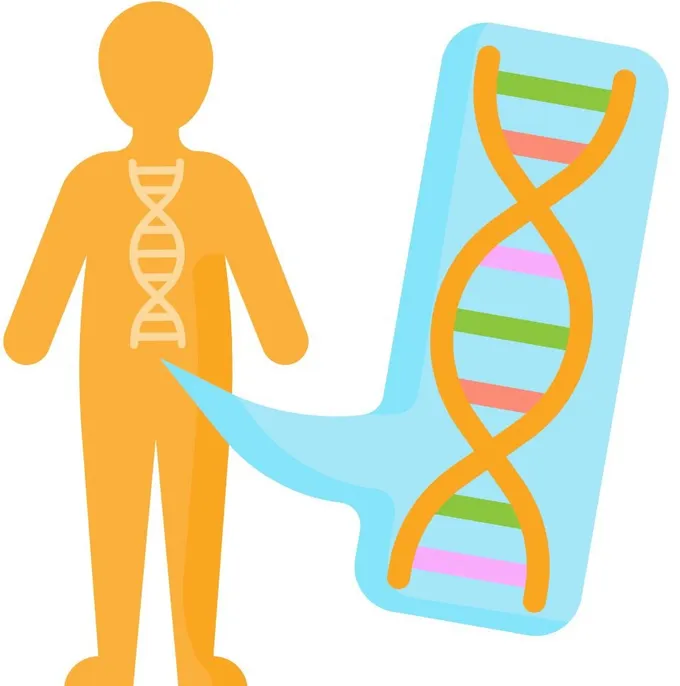
Childhood development is a complex and fascinating process that involves numerous factors, including genetics, environmental influences, and epigenetics. In recent years, epigenetics has emerged as a key player in understanding how genes are regulated and expressed during early life. Epigenetics refers to heritable changes in gene activity that occur without the DNA sequence itself. These changes can be influenced by a variety of factors, such as environmental conditions, lifestyle choices, and early experiences, and can have profound effects on cognitive growth, postnatal care, and long-term health outcomes.
Understanding Epigenetics in Brief
Epigenetics involves the study of changes in gene expression that do not involve alterations to the genetic code itself. It refers to external modifications to DNA that turn genes "on" or "off." These epigenetic changes can influence the activity of the genes and can be passed down to the next generation. The original sense of this definition includes a focus on both heritable changes in gene activity and temporary changes caused by environmental factors. Randy Jirtle's research on agouti mice demonstrated how diet could modify gene expression, impacting traits like fur color, obesity, and susceptibility to diseases such as coronary heart disease.
The Concept of Epigenetics
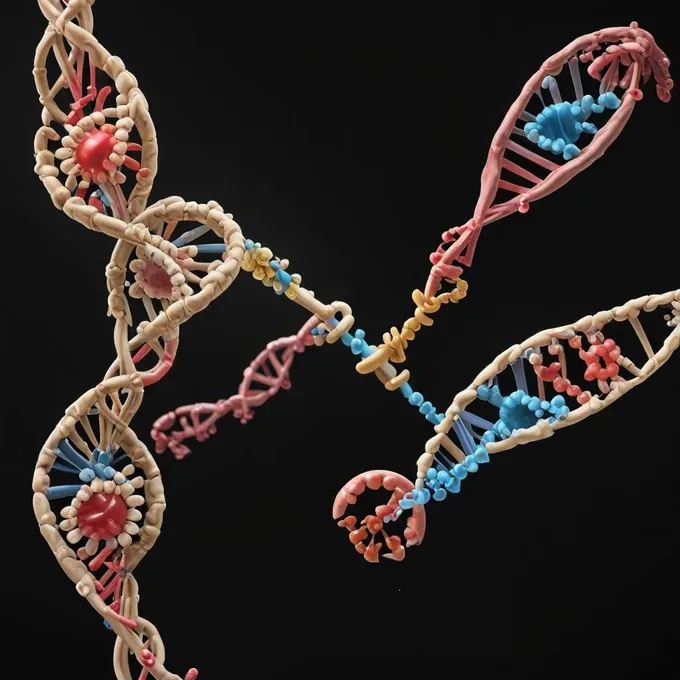
The study of epigenetics delves into heritable alterations in gene activity and expression, independent of changes in the DNA sequence. This field investigates how environmental factors, lifestyle choices, and life experiences can impact gene regulation, influencing cognitive development and postnatal care. The epigenome, composed of epigenetic marks, plays a vital role in coordinating gene expression across different tissues and cell types. Notably, epigenetic variances can manifest between identical twins, highlighting the influence of non-genetic factors on gene function. Understanding epigenetics is crucial for unraveling the molecular pathways associated with mental illness and coronary heart disease.
Epigenetics and Gene Expression
Epigenetic modifications, such as DNA methylation, play a crucial role in early childhood development by influencing gene expression. Maternal care, environmental factors, and gene activity mediate epigenetic inheritance, shaping gene function in subsequent generations. Processes like chromatin structure and histone modification impact genetic variation and gene activity, highlighting the dynamic nature of gene regulation. Stem cells and transposable elements undergo epigenetic reprogramming, emphasizing the dynamic nature of gene regulation. The term epigenetic mechanisms cover processes modulating gene activity and expression, showcasing the intricate relationship between epigenetics and gene expression.
Epigenetic Mechanisms Involved in Childhood Development
DNA methylation is a crucial epigenetic mechanism impacting childhood development. It involves the addition of a methyl group to DNA, regulating gene expression without altering the genetic code. Histone modifications also play a significant role, in affecting the accessibility of genes for transcription. Besides, RNA transcripts contribute to this process, guiding the production of proteins in cell cycle regulation. These mechanisms, as evidenced by Randy Jirtle's research on agouti mice, influence traits and disease susceptibility, highlighting their importance in understanding and addressing health issues like coronary heart disease.
DNA Methylation and its Role
DNA methylation, a fundamental process in epigenetics, involves the addition of methyl groups to DNA bases, influencing gene activity. This occurs de novo in early development, shaping gene expression and contributing to cognitive growth and postnatal care. Established during cell division, DNA methylation patterns control gene function and activity. DNA repair mechanisms maintain these patterns, which are crucial for gene regulation and epigenetic inheritance. The specific locations of DNA methylation, associated with particular gene activity, lead to epigenetic differences across generations.
Histone Modifications' Effect on Gene Regulation

Histone modifications, like acetylation and methylation, influence gene expression, shaping childhood development. Variants that remodel chromatin regulate gene function, impacting cognitive growth and postnatal care. Amino acid modifications, particularly methylation, affect gene activity, contributing to epigenetic inheritance and gene expression. Maternal care and other environmental factors can impact histone modification, potentially influencing gene regulation and cognitive growth. The role of histone modification in gene transcriptional activity underscores its significance in early childhood development.
Importance of RNA Transcripts
Influenced by epigenetic processes, RNA transcripts play a pivotal role in gene expression, cognitive growth, and postnatal care. Epigenetic mechanisms intricately regulate RNA transcription, impacting gene function and activity during childhood development. Modifications such as chromatin structure influence RNA transcripts, contributing significantly to cognitive growth and early childhood development. The impact of RNA transcripts on gene regulation underscores their vital role in epigenetic processes and gene activity, while their involvement in epigenetic inheritance emphasizes their contribution to gene function and molecular pathways.
Environmental Factors Influencing Epigenetic Processes

Environmental influences play a crucial role in shaping epigenetic processes. Factors such as diet and nutrition, physical activity, and stress can significantly impact the epigenome. The United States has seen an increase in studies focusing on the impact of environmental factors on epigenetics. Randy Jirtle's groundbreaking research demonstrated the profound effects of environmental exposure on gene expression. Additionally, the cell cycle and muscle cells are affected by these environmental factors, influencing the original sense of this definition. Understanding these influences is essential for comprehending the complex interplay between nature and nurture in shaping the genetic code.
The Impact of Diet and Nutrition

Environmental factors, like dietary choices, exert a significant influence on epigenetic processes, ultimately shaping gene expression and cognitive development. Nutritional elements, such as folate and methyl donors, actively contribute to epigenetic modifications and gene functionality during childhood growth. The impact of diet and nutrition in epigenetic processes is integral to understanding the complexities of gene regulation and cognitive development from an early age. This emphasizes the importance of comprehending the role of diet and nutrition in promoting optimal childhood development.
The Role of Physical Activity
Physical exercise, as an environmental factor, impacts epigenetic processes, influencing gene expression and cognitive development. The changes induced by exercise contribute to gene function, affecting postnatal care and cognitive development. The impact of physical activity on epigenetic processes emphasizes its role in genetic regulation and molecular pathways. Environmental factors, including physical activity, can lead to epigenetic variations, potentially influencing future generations and gene activity. The role of physical activity in modulating epigenetic processes underscores its significance in childhood development and gene function.
Effects of Stress and Trauma
Early life experiences, such as stress and trauma, have a significant impact on childhood development. They can result in epigenetic modifications that influence gene expression in response to environmental stressors. This can lead to cognitive growth being affected by the resulting epigenetic changes. Maternal care and postnatal experiences are crucial in shaping these epigenetic marks, further emphasizing their importance in early development. Additionally, the concept of epigenetic inheritance contributes to the transgenerational effects of stress and trauma, highlighting the far-reaching implications of early life experiences on genetic expression and subsequent development.
Long-term Implications of Epigenetics on Health and Behaviour
Long-term implications of epigenetics extend beyond early development, impacting health and behaviour throughout life. Environmental factors, such as stress and nutrition, can alter the genetic code, influencing susceptibility to conditions like coronary heart disease. Research by Randy Jirtle uncovered that diet can affect gene expression in muscle cells, showing how external factors can impact the cell cycle. Understanding these mechanisms opens new avenues for studying and treating complex conditions, shedding light on the original sense of this definition and its relevance to health.
Epigenetics and Cognitive Development
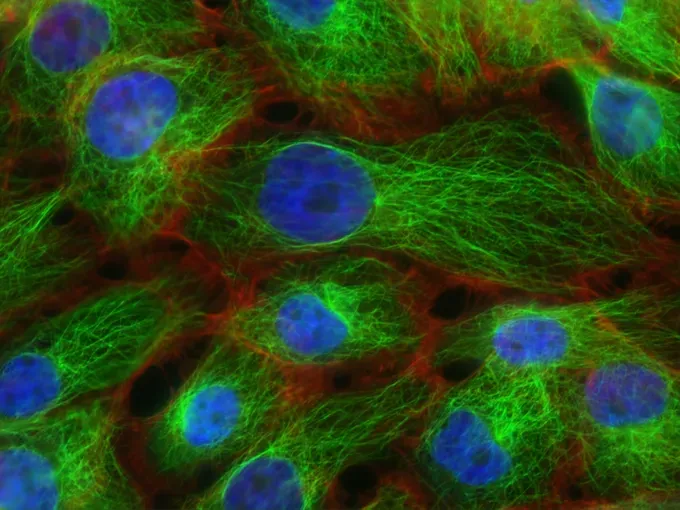
The regulation of gene activity by epigenetic processes plays a crucial role in cognitive development. Specific epigenetic marks on the genome are closely linked to cognitive function, influencing molecular pathways essential for cognitive growth. Notably, differences in epigenetic patterns between identical twins can impact cognitive abilities and intelligence. Furthermore, the influence of epigenetics extends to learning, memory, and behaviour in the context of cognitive development.
The Role of Epigenetics in Disease Susceptibility
Epigenetic modifications play a crucial role in influencing genetic variation and thus contribute to the susceptibility of individuals to various diseases. The reprogramming of gene expression through epigenetic mechanisms can lead to the manifestation of diseases, impacting different aspects of health. Additionally, variations in gene activity due to epigenetic differences can significantly affect the risk of developing conditions such as coronary heart disease and other illnesses. The intricate epigenetic landscape of chromatin remodelling has been found to be closely associated with the development of diseases, highlighting the importance of understanding these processes in disease susceptibility. Furthermore, epigenetic inheritance may predispose individuals to certain genetic diseases, underlining the need to explore the original sense of this definition in the context of human health and disease.
Epigenetics and Behavioural Traits
The development of behavioural traits and personality involves epigenetic marks. These marks influence the expression of genes associated with behavioural characteristics, thereby impacting brain development and subsequent behavioural patterns. Environmental factors play a role in shaping epigenetic differences, leading to varied behavioural traits. It's important to note that epigenetic modifications exert control over gene function, ultimately influencing a wide range of behavioural traits. This interplay between epigenetics and behavioural traits contributes significantly to our understanding of human behaviour and personality development.
The Significance of Studying Epigenetics in Early Life
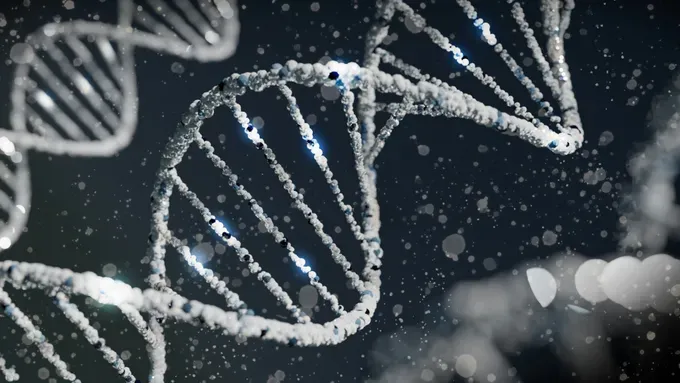
By exploring epigenetics in early life, researchers aim to comprehend how environmental factors influence gene expression. The original sense of this definition suggests that studying epigenetics can provide insights into the communication between genetic code and environmental cues during crucial developmental stages. Research by Randy Jirtle on Agouti mice exhibited that diet impacts DNA methylation, influencing phenotype across generations. Understanding the long-term implications of these processes is crucial to address concerns such as coronary heart disease and behavioural traits. The significance of studying epigenetics in early life lies in uncovering how external factors affect gene regulation without altering the genetic code itself.
Epigenetics in Prenatal Development
In the prenatal stage, epigenetic modifications exert a significant influence on the patterns of gene expression. Notably, the maternal environment contributes to alterations in fetal development at an epigenetic level, impacting gene activity in future offspring. These marks, developed during prenatal stages, play a pivotal role in shaping gene function and can have lasting implications on postnatal health outcomes. The in-utero epigenetic processes hold paramount importance in determining the genetic code of the developing fetus, highlighting the vital link between prenatal epigenetics and future physiological well-being.
Epigenetic Changes during Childhood
During childhood, the process of epigenetic reprogramming can markedly influence the expression of genes and the structure of chromatin. Environmental factors experienced during this critical period have the potential to induce significant epigenetic modifications. Furthermore, it is noteworthy that these epigenetic changes may be inherited across generations, leading to transgenerational effects stemming from childhood. The intricate epigenetic landscape during childhood development plays a crucial role in shaping gene function and ultimately impacting long-term health outcomes. Importantly, childhood experiences have the capacity to mold epigenetic mechanisms and subsequently influence gene activity.
Advances in Epigenetic Research and Their Implications
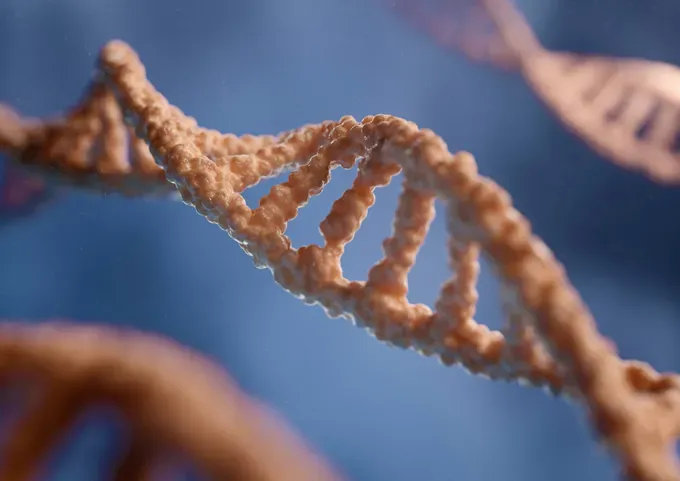
The evolution of epigenetic research has revealed fascinating insights into the mechanisms governing gene expression and regulation. Recent advances, including innovative techniques employed in studying epigenetics, have paved the way for a deeper understanding of how environmental factors impact gene regulation. These breakthroughs hold significant implications for our comprehension of various health conditions, such as coronary heart disease, and shed light on the intricate interplay between genetic code and environmental influences. Internationally renowned researcher Randy Jirtle is at the forefront of pioneering studies uncovering the profound impact of environmental factors on gene expression and its relevance to human health.
Current Techniques for Studying Epigenetics
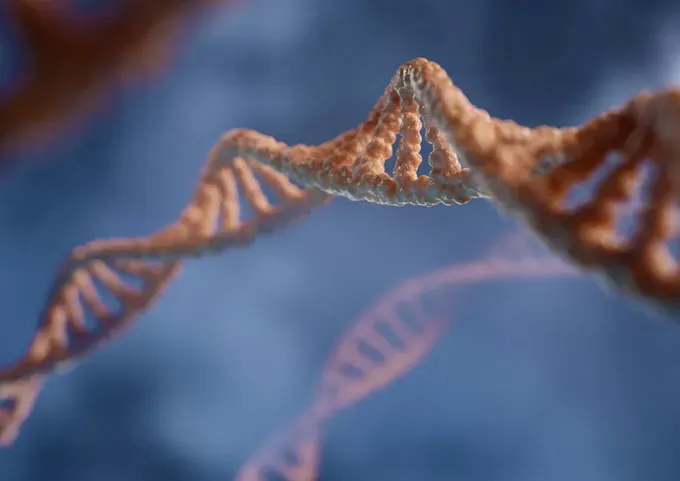
Current Techniques for Studying Epigenetics:
Advanced molecular pathways are utilized in epigenetic research to examine gene expression. DNA methylation analysis offers valuable insights into epigenetic modifications, while the study of histone variants and chromatin remodelling techniques helps us understand epigenetic mechanisms at a deeper level. Next-generation sequencing plays a crucial role in identifying epigenetic variances in gene activity. Additionally, integrating stem cells into epigenetics research has significantly enhanced our comprehension of gene function.
Future Directions in Epigenetic Research
The evolving landscape of epigenetic research presents a promising avenue for unravelling novel insights into gene function. Delving deeper into epigenetic processes holds the potential to catalyze breakthroughs in mental illness and coronary heart disease research. Exploring the realm of epigenetic reprogramming may yield implications for reproductive biology and postnatal care. Additionally, the role of epigenetic mechanisms in early childhood development and cognitive growth is a focal point for upcoming research. Furthermore, the next phase of epigenetics investigation aims to illuminate the impact of environmental factors on gene activity, further expanding the original sense of this definition.
Conclusion
In conclusion, epigenetics plays a crucial role in childhood development, shaping health and behaviour outcomes. Understanding the concept of epigenetics and its mechanisms, such as DNA methylation, histone modifications, and RNA transcripts, helps us comprehend how environmental factors like diet, physical activity, stress, and trauma influence gene expression. Epigenetics has long-term implications for cognitive development, disease susceptibility, and behavioural traits. Studying epigenetics in early life, including prenatal development and childhood, provides valuable insights into future health outcomes. Advances in epigenetic research and techniques open new avenues for further exploration and understanding. To delve deeper into this fascinating field and its future implications, we invite you to check out our comprehensive blog on the subject.
Frequently Asked Questions Answered
What is epigenetic in simple terms?
Epigenetics, in simple terms, refers to changes in gene expression not caused by alterations to the DNA sequence. It encompasses modifications influenced by environmental factors and can be passed down through generations. Understanding epigenetics is crucial for improving human health and developing treatments for genetic disorders.
What is the principle of epigenetics?
Epigenetics explores changes in gene expression that occur without altering the DNA sequence. This principle highlights how environmental factors influence gene activity, and these changes can be inherited across generations. Understanding epigenetics enhances our comprehension of childhood development and offers potential for improved outcomes.
What should everybody know about epigenetics?
Epigenetics, the study of changes in gene expression without altering the DNA sequence, is a fascinating field. Environmental factors like diet, stress, and pollution can impact epigenetic marks. This plays a crucial role in various diseases, including cancer and neurological disorders. Understanding epigenetics offers potential insights into treatments.
What are the top 3 influences for epigenetics in children?
Environmental factors like nutrition, stress, and toxins, along with social experiences and genetic variations, can influence epigenetic changes in children. These influences highlight the importance of early childhood experiences and environments on lifelong health outcomes.
What is the future of epigenetics?
The future of epigenetics holds great promise, with potential breakthroughs in personalized medicine. Research in this field may uncover the underlying causes of complex diseases, leading to new treatments. As scientific advancements continue, epigenetics could become more integrated into medical practice.
Related Articles
Master Active Listening Activities for Personal Success
Early Childhood Cognitive Development Potential
Cultivating Success: Planting the Seeds of Potential from Birth
Fostering Curiosity during Early Childhood: Enhancing Cognitive Development
Citations
https://www.sciencedirect.com/science/article/pii/S0079610723000034
https://www.ncbi.nlm.nih.gov/pmc/articles/PMC8914061/
https://www.frontiersin.org/articles/10.3389/fnins.2021.663934/full
https://www.nature.com/articles/s41586-020-2118-2
https://www.ncbi.nlm.nih.gov/pmc/articles/PMC7150859/
https://www.sciencedirect.com/science/article/pii/S0092867420309080







































































































































